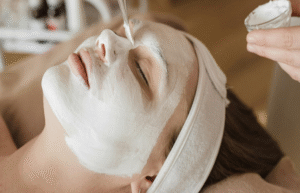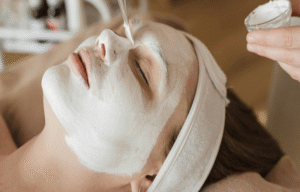Alopecia or hair loss: natural solutions

Alopecia is a medical term for hair loss of more than 100 hairs per day for more than three weeks. If this definition has the gift of being precise, it is impractical: it is indeed difficult to know how much hair falls on a daily basis.
Are you losing hair? Don’t panic, it’s normal: the hair cycle induces constant hair renewal. But when this fall leads to a gradual thinning, it can be a source of worry and complexes. Discover the main factors and natural solutions to alopecia.
The hair cycle: the story of life, the eternal cycle
Hair loss is an integral part of its life cycle, which consists of three phases. First of all, the anagen phase or hair growth phase designates the phase of strong hair growth.
The catagen phase follows, during which the hair stops growing: it generally lasts between one and three weeks. Finally, the telogen phase, which can last between two and four months, marks the end of the cycle. This phase is characterized by hair loss. If you do not go bald overnight, it is because the hair follicles are not synchronized: each hair thus follows its own cycle.
Diagram of a healthy scalp (Doctissimo): of the 10 hair follicles occupied, 7 are occupied by adult hair, 2 by regrowth and one by a hair in the fall phase whose regrowth can be seen.
It is therefore normal to lose hair daily. When should you worry about severe hair loss?
Alopecia is a medical term for hair loss of more than 100 hairs per day for more than three weeks. If this definition has the gift of being precise, it is impractical: it is indeed difficult to know how much hair falls on a daily basis. In addition, it corresponds to an average and is therefore to be taken with hindsight: your hair will indeed have a greater tendency to fall out if you use cosmetics that are too aggressive or if you use your hair too regularly (straightening, straightening, repeated coloring, wearing tight buns).
Diagram of a deficient scalp: 1 hair follicle is in a resting phase and two others are in a weak regrowth phase.
This is why alopecia is also defined as hair loss leaving the skin partially or completely bare. This generic term actually covers a multitude of different phenomena: deciphering the most common cases of alopecia.
Dietary deficiencies and hair loss: a close link
Abnormally high hair loss may be linked to dietary deficiencies. Zinc, iron, vitamin B12, vitamin D… Food is key for healthy hair full of vitality.
Iron: a widespread and harmful deficiency for your hair
As a component of hemoglobin (blood), iron provides the cells responsible for hair synthesis with the nutrients and oxygen they need to function properly. Iron deficiency makes hair thinner and more brittle and causes abnormal hair loss. This is the most widespread nutritional deficiency: in France, 25% of premenopausal women have an iron deficiency according to Social Security. Women are the main people at risk because they lose iron during menstruation; this deficiency particularly affects pregnant women because many of their organs are functioning at full capacity: this intense functioning requires an increase in blood and therefore an increase in iron.
Zinc: essential trace element for hair
Keratin is a natural protein that makes up 97% of the raw material of hair. Collagen helps keep hair hydrated by trapping water in the heart of the fiber for supple and soft hair. Zinc will therefore help limit hair loss, strengthen the hair shaft in the bulb while stimulating hair growth.
Vitamin B6
It stimulates the production of keratin thus hair growth and helps zinc to inhibit the production of the enzyme responsible for hair loss in baldness.
All of these are necessary for good health and a healthy scalp. If the hair loss is accompanied by fatigue, change in appetite and concentration disorders, consult your doctor: a simple blood test is enough to quickly identify the deficiencies, and a course of capsules to remedy them.








